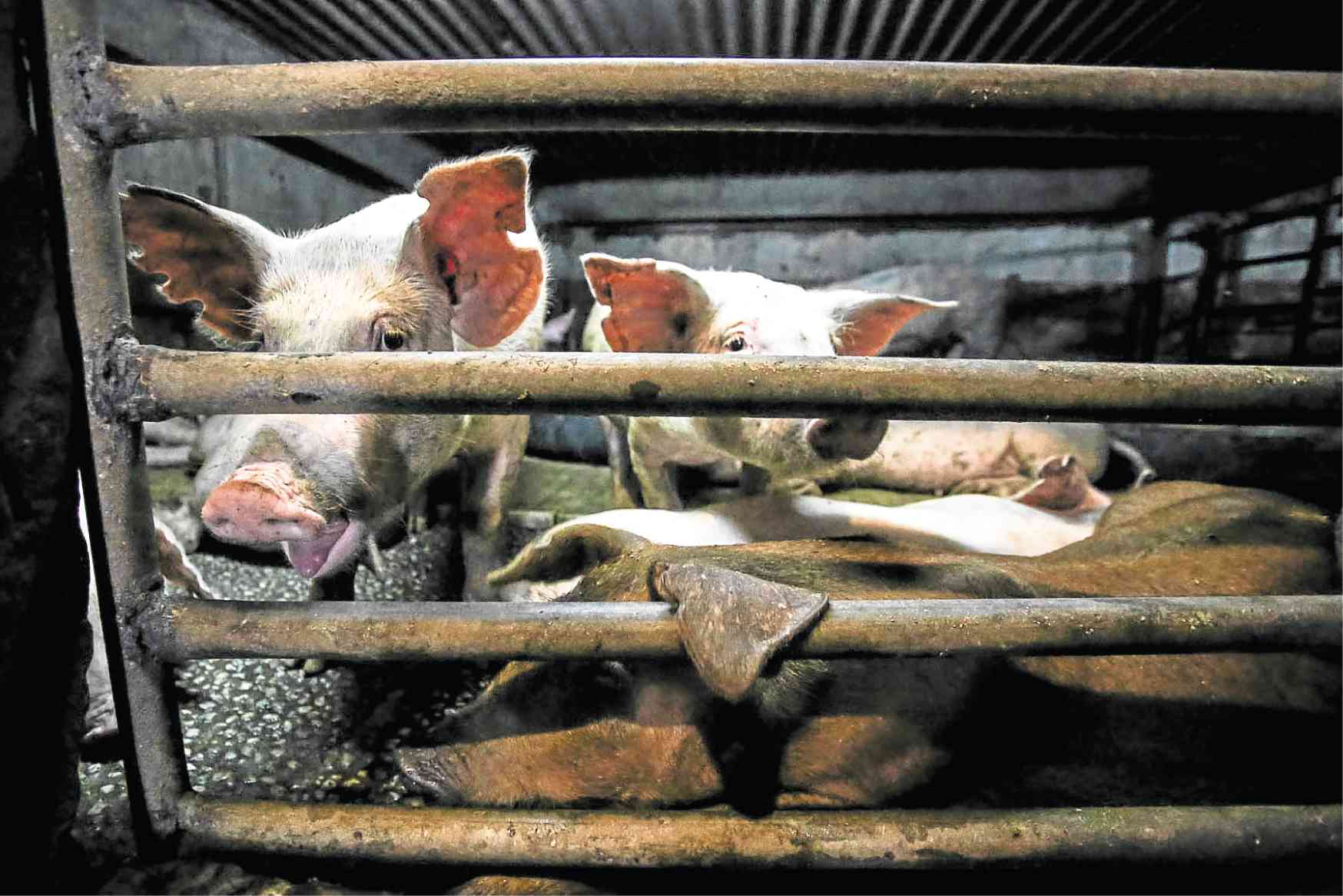
PIG STOP Local governments in the Visayas and Mindanao have issued resolutions to stop the transport and trade of live hogs and pork products from Luzon in their areas amid the scare generated by the African swine fever. —JAM STA. ROSA
CEBU CITY—Agriculture Secretary William Dar has failed to convince Cebu Gov. Gwendolyn Garcia to lift the 100-day ban on pork products from Luzon where several areas are affected by the African swine fever.
Dar, however, was all smiles after his two-hour meeting with Garcia at a hotel in Mandaue City on Tuesday night. He said he understood the reasons for Garcia’s executive order for a pork ban to protect the swine industry in Cebu.
The two officials were joined by Salvador Diputado, the Department of Agriculture director in Central Visayas; representatives from the Central Visayas Pork Producers Cooperative (CVPPC); and Negros Oriental Gov. Roel Degamo, who also imposed a regulated entry of pork to his province.
Dar was in Cebu to meet with governors of Central Visayas.
Bohol Gov. Arthur Yap, who also imposed a total pork ban, did not attend the meeting. He was attending to a visiting ambassador in Bohol and could not make it to the meeting. Siquijor Gov. Zaldy Villa was also not in the meeting because of prior commitments.
“I already talked [with Garcia]. We have understood each other. We’re all for the protection of the hog industry all over the country and we have agreed to share notes from time to time. Everyone has to help each other,” said Dar, when asked what happened to his appeal not to reconsider the restrictions in the pork industry trade.
Producers elated
Rolando Tambago, CVPPC president, welcomed the strong stance of the provincial government to continue imposing the ban on pork products and live hogs from Luzon.
“We are now assured that our hog industry in Central Visayas is protected,” he said.
Cebu is the largest pork-producing province in Central Visayas and the fourth among producers in the country.
Data from the provincial agriculture office show that Cebu residents consume 61.6 million kilograms of pork a year, while tourists account for 1.8 million kg, mostly from Cebu “lechon” sales.
Pork producers in Cebu sold 99,898 metric tons of pork in 2018 valued at P10.9 billion.
Dar earlier asked both Cebu and Bohol governors to “soften their hearts” and allow the food lines to flow freely.
But Garcia held on to her executive order to protect the interest of the Cebu hog industry despite the appeal of Dar. This was also the same stance of Yap, a former agriculture secretary.
In Davao City, Mayor Sara Duterte on Wednesday also banned hogs, including frozen boar semen, pork and pork products from Luzon, and other areas affected by the swine disease.
The ban followed the approval of a city council resolution last week recommending such a measure to protect the local hog industry.
Duterte’s order on the ban also called for the adoption of “strict biosecurity and good animal husbandry practices” in swine farms as well as the prohibition of feeding raw swill, a practice that is common among backyard hog raisers.
Hotels, restaurants and food joints were asked not to give their food waste to hog raisers to minimize the practice of swill feeding.
Quarantine measure
The pork ban and other preventive measures were also imposed in Misamis Oriental province and Iligan, Cagayan de Oro and Mati cities.
Eduardo So, president of the Hog Raisers Association of Davao, said the ban should be taken as an urgent quarantine measure to protect the multibillion-peso hog industry in Mindanao.
“This is not an attempt to restrict trade and the free flow of food but an act to protect an industry which provides income and livelihood to thousands of families,” So said in a statement. —WITH A REPORT FROM RYAN ROSAURO